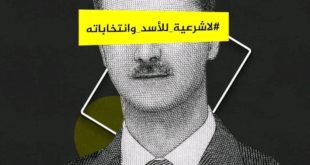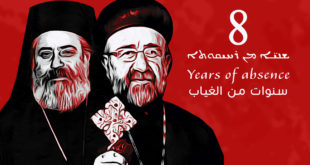ADO-World.org
Western powers have dropped earlier calls for immediate sanctions against Syria by the UN Security Council in the face of veto threats from China and Russia, as activists reported more civilian deaths in the country.
Put together by Britain, France, Germany and Portugal, with backing from the United States, the scaled-back draft resolution, which was obtained by reporters on Tuesday, is aimed at breaking a deadlock at the Security Council.
The resolution, if passed, would have the 15-nation council voice "grave concern" at the situation in Syria and demand "an immediate end to all violence".
"If you look at that resolution, really what it appears to be doing is buying time," Al Jazeera’s Jane Arraf, speaking from Amman, Jordan, said.
If Damascus fails to heed the council’s demands, the Security Council would still "adopt targeted measures, including sanctions", the resolution says.
Last month, an earlier draft resolution was circulated, calling for sanctions against Bashar al-Assad, influential members of his family and close associates.
It said at the time that the drafting countries wanted a vote as soon as possible, but that vote never came.
Veto-wielding council members Russia and China, as well as Brazil, India and South Africa, opposed the previous European and US draft sanctions resolution.
Western diplomats said that the new resolution would hopefully be more palatable to those five nations, also known as the "BRICS" bloc of key emerging market economies.
They said the new resolution was still quite strong, even though it does not include any punitive measures.
"We want to send a strong and unified message to ensure that the Assad regime does not remain deaf to the demands of the international community," a European diplomat told the Reuters news agency on condition of anonymity.
"We want to get the council to approve something quickly," another diplomat said, adding that the new draft was "pretty threatening".
The second diplomat said the Europeans hoped to be able to get the council to approve the new draft resolution very soon, possibly within the next 24 hours.
Separately, Sergei Lavrov, the Russian foreign minister, told the UN General Assembly on Tuesday that the BRICS, which US and European diplomats say are becoming increasingly obstructionist, were not looking for fights but wanted multilateral solutions to urgent problems.
‘Continued crackdown’
Meanwhile, rights groups said that violence on the ground was continuing.
Syrian forces killed at least six civilians in raids on dissidents on Tuesday, according to the London-based Syrian Observatory for Human Rights.
"Three civilians were killed and seven others were injured during an assault by the army and security agents against the Homs district of Bayada," it said.
The attack came after soldiers who had abandoned the government forces burned a tank in the area, the rights group said.
Government forces killed two civilians during raids in the northern town of Jabal al-Zawiya, and another civilian was killed and five wounded in a dawn operation in southern Daraa province, where the protests began in mid-March.
Powerful guns, some mounted on tanks, were used on people in Rastan, Talbisseh and Tir Maala, all in central Homs province, the Observatory added.
"At least 20 people were wounded, seven seriously, when soldiers using heavy machine guns on tanks began to open fire at sunrise in Rastan," it said.
The Local Co-ordination Committees, which organise protests on the ground, reported a "massive deployment" of security forces in Rastan.
The opposition Syrian National Council, meanwhile, announced plans to meet in Istanbul this weekend to try to unify the fragmented coalition.
"We will meet on October 1 and 2, in principle in Istanbul," spokeswoman Bassma Kodmani told reporters. "Then we will talk about setting up committees."
The council, which was set up in August, consists of 140 people. Half of them live in Syria and their names have not been made public for security reasons.
 Assyrian Democratic Organization ADO
Assyrian Democratic Organization ADO






